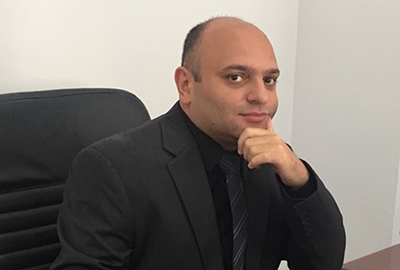We should be change agents, and it is hard to believe that a nonleader can become good at bringing change. No matter whether an internal auditor should be ambitious or not, let us consider that every auditor should want to become a chief audit executive (CAE) one day.
However, the nature of an auditor's ambitions must be ethically strong. To deserve to be leaders, we must always conform with the Integrity principle of The IIA's Code of Ethics!
So, what is the path to becoming a CAE? First, you must become an internal auditor. You should love this profession and should find yourself in it. From there, you should demonstrate five strengths needed to become a successful CAE, which you can identify through a strengths, weaknesses, opportunities, and threats analysis of your capabilities.
Conformance with the principles of the Code of Ethics. Conformance is not only about your behavior; you must be in compliance by your nature. The only way of doing things is to follow what the Code states about:
- Integrity. This is the foundation of your ethics. Without honesty, you will not be able to be objective or stay confidential. You will not even improve your competency appropriately, although you may pretend that you have.
- Objectivity. Consider all details of the circumstances, avoid bias, and overcome the inherent pressure all auditors face to find deficiencies, rather than to evaluate objectively. Evaluate your independence, as well. You could be the most honest and objective person, but if you are not independent, objectivity inevitably will be impaired.
- Confidentiality. Use the information obtained during audit work only for making conclusions. Never use it for your own sake, and always respect others' privacy.
- Competency. Learn, learn, and learn again. Analyze what you have learned and ask yourself probing questions. Try to explain new knowledge to your peers, friends, and family members, and even to your children. Remember, if you cannot explain it to a six-year-old child, you did not understand it yourself.
Understanding and aligning with The IIA's Mission of Internal Auditing. This understanding must be your strategic goal. Anything you do is to enhance and protect organizational value. Auditors should perform a root cause analysis, define real problems, and provide effective but executable recommendations.
Understanding and aligning with the vision, mission, and strategies of the auditor's organization. You will not be able to enhance or protect organizational value if you do not understand that value (culture, strategy, risk appetite, tolerances, etc.). For instance, it is not appropriate to recommend excessive control activities for an organization that has chosen a risk-adverse culture.
Diplomacy and assertiveness. Your opinion is untouchable if that opinion is objectively formed and stated, but the wording of that opinion is not so vital, as long as adjusting the words does not affect the essence of the opinion. Auditors have to do their best to explain to audit clients that their only intention is to add value to the process, rather than merely show deficiencies. When you are unsuccessful at that, maintaining diplomacy and assertiveness is almost impossible because your diplomacy will seem deceitful and your assertiveness will seem aggressive. The only way to make audit clients trust your intentions is to add value.
Leadership skills. You must be able to lead your peers, as well as lead the changes within the organization.
- Many words have been written about "being a boss versus being a leader," and most of those statements are correct and effective. You must lead by example instead of giving orders, as well as understand, motivate, support, and mentor the team.
- To become a change agent, start by doing your job. Identify areas for improvements, give qualified recommendations, achieve effective corrective action plans with defined deadlines, and follow up on their implementation.
An internal audit who possesses these strengths deserves to wish for and become a CAE.
Aziz Fataliyev, CIA, is president and chairman of the board of IIA–Azerbaijan, and head of the internal audit department at Yelo Bank OJSC in Azerbaijan.
Want to be a part of Your Voices? Click here to learn how to contribute a blog post.



